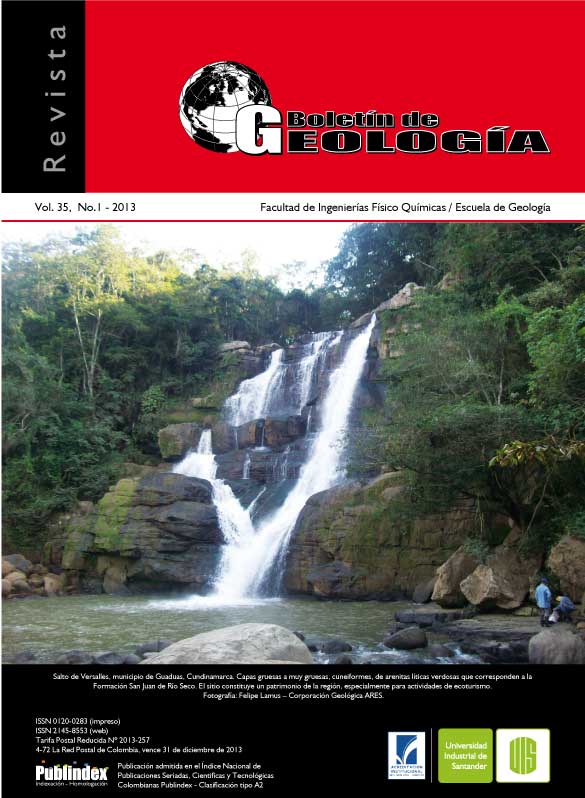MACROSEISMIC STUDY OF THE 1743 COLOMBIAN CENTRAL REGION EARTHQUAKE
Published 2013-05-31
How to Cite
Abstract
On October 18, 1743 a great earthquake hit in Colombian central region. This seismic event caused severe damage in Santa Fe de Bogota that since 1740 had just been reinstated again as the capital of the “Nuevo Reino de Granada”. The churches of “Monserrate” and “Guadalupe” were destroyed and other suffered heavy damage. Damages were extended in surrounding areas as the towns of Fómeque, Chia, Usaquén Cáqueza, among others. In these towns, the churches were destroyed, and subsidence phenomena were noted, large cracks, fissures and landslides that clogged roads and some rivers and caused the death several people and animals. Applying the 1998 European Macroseismic Scale (EMS-98), in the present work reassessing the macroseismic intensity in each affected town. We present a new macroseismic map with 18 intensity data points. We have proposed as maximum intensity equal to VIII in Fómeque, Guachavita and Cáqueza. In Santa Fe de Bogota the instensity is VII. The Bakun and Wentworth (1997) method is applied, using the intensity data points obtained in the present study and macroseismic intensity attenuation relationship given by Gómez Capera and Salcedo Hurtado (2002), to estimate earthquake parameters to 1743 event. We have proposed a macroseismic magnitude that equals 6.30±0.35 and the epicenter location in (4.43N, 73.91W) between the townships of Cáqueza and Guachavita.
Keywords: Historical Earthquake Study, macroseismic intensity, earthquake parameters
Downloads
References
Álvarez-Rubio S., Kästli P., Fäh D., Sellami S., and Giardini D. 2011. Parameterization of historical earthquakes in Switzerland, J. Seismol, doi: 10.1007/s10950-011-9245-8.
Bakun, W.H., and Wentworth, C.M. 1997. Estimating earthquake location and magnitude from seismic intensity data, Bull. Seism. Soc. Am., 87: 1502–1521.
Bakun,W.H. 1999. Seismic activity of the San Francisco Bay Region, Bull. Seism. Soc. Am., 89 (3): 764–784.
Bakun W.H., and Wentworth C.M. 1999. Erratum to Estimating earthquake location and magnitude from seismic intensity data, Bull. Seism. Soc. Am., 89: 557.
Bakun W.H. 2005. Magnitude and location of historical earthquajes in Japan and implications for the 1855 Ansei Edo earthquake. J. Geophys. Res. 110. B02304, doi: 10.1029/2004JB003329
Bakun W.H. 2006. Estimating locations and magnitudes of earthquakes in Southern California from modified Mercalli intensities, Bull. Seism. Soc. Am., 96: 1278–1295.
Bakun, W.H., and Scotti, O. 2006. Regional intensity attenuation models for France and the estimation of magnitude and location of historical earthquakes, Geophys. J. Int., 164: 596– 610.
Bakun W.H., Gómez Capera A.A., and Stucchi M. 2011. Epistemic uncertainty in the location and magnitude of earthquakes in Italy from macroseismic data, Bull. Seismol. Soc. Am. 101: 2712-2725
Bakun, W.H. Flores, C.H., and Ten Brink, U.S. 2012. Significant Earthquakes on the Enriquillo Fault System, Hispaniola, 1500-2010: Implications for Seismic Hazard, Bull. Seismol. Soc. Am., 102: 18-30
